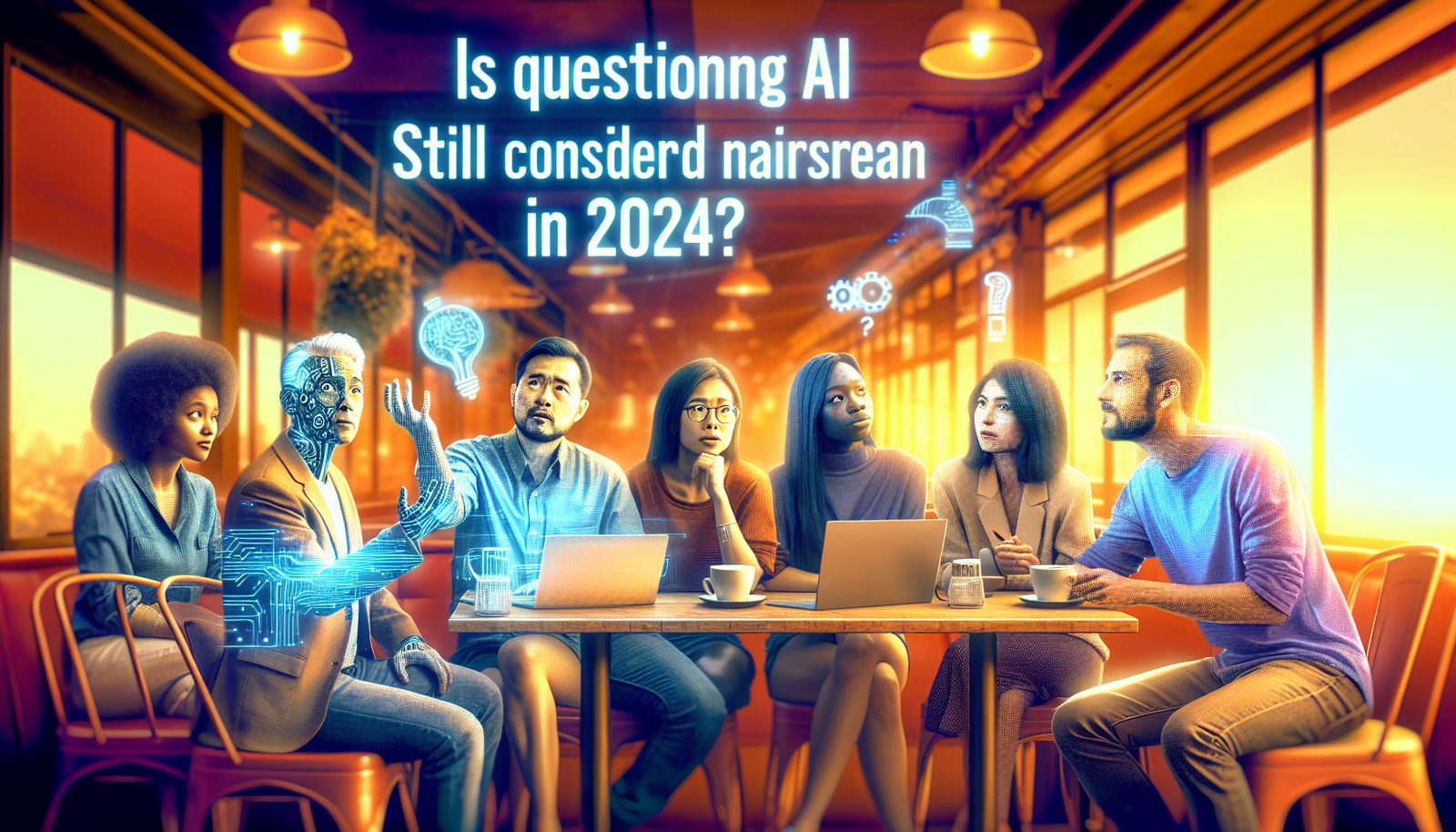Questions about artificial intelligence are more relevant than ever. Many personalities, from scientists to entrepreneurs, express concerns about the rapid rise of this technology. This context raises an essential reflection: _is it still possible to voice reservations without being stigmatized_? The tension between technological optimism and existential threats raises critical issues. _The frantic search for innovation coexists_ with a troubling reality, one that threatens our relationship with ethics and human values. Addressing these questions reflects an unavoidable complexity.
A storm of controversies surrounding artificial intelligence
In the technological landscape of 2024, questioning artificial intelligence (AI) becomes a perilous exercise. Discourses polarize around the opportunities and dangers that this technology promises. Many seek to alarm themselves in the face of potential dangers. For some, this concern borders on catastrophism, but for others, it is deeply rooted in a necessary caution.
Reputations at stake and scientific dissensus
Many scientists stress the risks of unregulated AI. Geoffrey Hinton, criticized for his warnings, remains a prominent figure. His reluctance to yield to the sirens of blind optimism positions him among dissenting voices. This polarization is dangerous, as it leads to the marginalization of critical opinions.
Yet, considering AI as an existential threat has its supporters. Researchers such as Stephen Hawking had already raised alarms about the consequences of uncontrollable AI advancement. In contrast, others, like Yann LeCun, label these fears as “ridiculously absurd.” This dichotomy illustrates the climate of intellectual tension that has settled around discourses on artificial intelligence.
Unresolved ethical implications
The ethical dilemmas surrounding AI raised in 2024 require particular attention. The absence of clear regulations heightens concerns regarding the collection and exploitation of personal data. The emergence of autonomous AIs raises fundamental questions about the responsibility and morality of algorithms.
The gap between technological realities and ethical considerations continues to widen. The imperative to create ethical AI systems collides with the commercial interests of large companies. Unions, think tanks, and researchers advocate for more discretion when implementing powerful AI tools.
An still embryonic legal framework
The emergence of suitable regulations takes time. The European legal framework around AI applications is slowly beginning to take shape. New laws attempt to ensure that AI respects the fundamental rights of citizens. Nevertheless, regulatory deadlines often lag behind technological advancements, creating a detrimental legal void.
The slow decision-making processes leave the field open to uncontrolled AI deployments. Jurisdictions are trying to align their positions in the face of rapidly evolving issues. This situation encourages a vigorous debate on law, compliance, and how AI should be regulated.
Exclusion and inequalities in the face of AI
Debates surrounding the accessibility of AI are provocative. Voices are rising to denounce the exclusion of populations less familiar with these technologies. Associations highlight the risk that advancements in artificial intelligence could deepen inequalities. A lack of inclusivity in AI development could lead to discriminatory consequences.
A recent study reveals that blind individuals, for instance, are often left behind in accessing the benefits of AI. Innovation should not come at the expense of the most vulnerable, and the social responsibility of developers is called into question.
Towards a collective awareness
Recently, opinion leaders are beginning to recognize the need for an open dialogue on artificial intelligence. The confrontation of ideas, even the most critical ones, is essential for progress. Creating a free space for exchange around AI could better prepare societies for future challenges.
Dissenting voices, far from being marginalized, should be integrated into discussions. A balance is needed to establish a framework that fosters both innovation and safety. The multiplicity of opinions could enrich reflections on the evolution of AI in our societies.
Frequently asked questions about artificial intelligence in 2024
What are the main risks associated with artificial intelligence in 2024?
The risks include loss of privacy, data exploitation, algorithmic discrimination, and the possibility of uncontrolled autonomy of AI systems, which could lead to unforeseen consequences.
How can I express my concerns about artificial intelligence without being stigmatized?
It is important to present concerns factually and rationally, using concrete examples and engaging in open dialogue about ethical implications rather than simply criticizing the technology.
Are there instances where skepticism towards artificial intelligence is encouraged?
Yes, several researchers and decision-makers call for constructive skepticism to ensure that adequate regulations are put in place and to avoid potential abuses of AI usage.
Who are the main critical voices discussing the dangers of AI today?
Influential figures in the fields of technology and science, such as Geoffrey Hinton and Stephen Hawking, have expressed doubts about the risks of AI, and their perspectives are increasingly recognized in public debate.
Is it acceptable to be concerned about the ethical consequences of AI in 2024?
Absolutely, it is essential to seriously address ethical questions. The debate on AI ethics is not only acceptable but necessary to ensure responsible and beneficial development of the technology.
How does society react to critical discussions about AI?
There is a diversity of opinions; some people support critical inquiries while others reject them. Public debate remains dynamic, and more voices are being heard questioning the direction of AI development.
How can skepticism towards AI contribute to its development?
Skepticism can encourage researchers and developers to be more cautious, to strengthen safety measures, and to integrate ethical considerations from the design of AI systems, thus fostering a more responsible approach.






